
by Mark Yon
Scenes from England
Hello again!
In the world of British SF magazines, things have moved since last time we spoke. In the comments on my review of SF Impulse last month, my colleague Kris here at Galactic Journey gave me the news from the BSFA magazine Vector that despite the publishers going bankrupt, Brian Aldiss has managed to secure a deal with the British Arts Council for funds. This has propped up New Worlds for a while. But notice – the funding is just for New Worlds.
So something has had to give. As a result, the two magazines have merged from this issue, hence the new banner heading (even if sf impulse is in much smaller type – expect to see that disappear soon!)

To be fair, though, I have noticed over the last few months that the magazines have become very similar to each other anyway – both have had book reviews, letters pages and even the same roster of writers flitting between the two magazines. It almost makes me wonder if the editors Mike Moorcock and Keith Roberts (with a helping hand from Harry Harrison) had an inkling…

Anyway, all of this is explained in Moorcock’s editorial, entitled “Changes Coming”. Understandably, lots of praise for Aldiss and all of those who fought for New Worlds with the Arts Council. It looks like the magazine may have survived (again) – at least for a while.
To the New Worlds/SF Impulse issue.

Report on Probability A by Brian W. Aldiss
And after the praise already heaped upon Brian, here’s some more.
According to Moorcock’s Editorial, Brian has donated his story to the magazine. Knowing that funds are tight (ie: non-existent) Brian, like all of the other contributors this month, have given this complete novel of over 100 pages for free (or at least a minimal amount.)
That’s the plus-point. Readers may be less happy knowing that, like last month’s Just Passing Through in SF Impulse, this is Brian in experimental mode. Anyone expecting a humourous Aldiss story or a more-straightforward science fiction story may be disappointed.
Mr and Mrs Mary are being observed from three different perspectives by ex-employees of Mr and Mrs Mary, which make up this report. G is a gardener who watches Mr and Mrs Mary from a summerhouse. S is an ex-secretary who does the same from an outhouse in the back garden. C, the ex-chauffeur, is in the loft of the garage close to the Mary’s house. We have a story divided up into different perspectives and written in three different sections (The number three seems important here!) It is a story of surveillance, about observation and effect of being observed. Therefore, lots of meticulous descriptions of what the observers and Mr and Mrs Mary are doing follows.
The reason for this observation slowly becomes apparent when we realise that the observers and the observed are being watched themselves by Domoladossa and Midlakemela, aliens who think that this observation of “Probability A” is important. (It seems that the universe has a number of probabilities, of which this is just one.)
And then we get to the point that Domoladossa and Midlakemela, who are watching the observers watching Mr. and Mrs. Mary, are being watched themselves by The Distinguishers, who are in turn being watched…. confused yet?
It is easy in some ways to see why not a lot happens – although that seems to be the point. The dialogue reminded me a little of Samuel Beckett or Harold Pinter in its stylistic brevity and manner – something that with Aldiss’s literary bent I am sure is no coincidence. It is also weirdly voyeuristic – much of what is described seems mundane and of little consequence, yet I found myself wanting to keep reading.
I guess that the reason for these descriptions of the obvious, whilst they may seem very boring to me/us, is that the world of the Mary’s and their observers is being described for those who have never seen it before. It shows us our world as others see us. Together these viewpoints create a mosaic of often rather mundane events – lots of talk of processed fish, factory strikes, the weather (especially rain.) It’s all rather British and summarises perhaps how others see us.
Interestingly, the constant watching and the events observed makes the whole thing feel claustrophobic and unsettling. Have you ever felt you’ve been watched? Here you are!
There are a lot of unanswered questions. Whilst we are told that ‘it’ may be important, what is the purpose of the surveillance? Is it just to observe? And why is it the Mary family that are being observed? Mrs. Mary is described at one point to perhaps being “the key to everything”, although we are not always clear what “everything” is. Is it something creepy or even malicious?
This may not be to everyone’s tastes – despite Moorcock pointing out on the back cover that it is “perhaps his most brilliant work to date”, the lack of a plot makes it rather against the usual grain. I suppose that it is this that has made the novel a hard sell – I understand that this story has been around a while before being published – but it is one that kept me thinking. Does feel a tad too long, though. Nevertheless, it has stayed with me since reading, a sign that the story has made an impact. 4 out of 5.
The Ersatz Wine by Chris Priest
A story of multiple narratives all chopped up into a jumbled tale. A story of nothing turned into a confusing nothing that plays with form but is probably a story where the form is more important than the narrative. 3 out of 5.
The Assassination of John Fitzgerald Kennedy Considered as a Downhill Motor Race by J. G. Ballard
Ah – the now predictable scenario of J. G. using contemporary people and elements to tell his downbeat cut-up tale. Before we’ve seen included JFK, Mickey Mouse and Marilyn Monroe amongst others. However, I’m not sure about this one where the events of the assassination are turned into a motor race. For example, Oswald starts the race by firing his gun, Kennedy is disqualified at the hospital for taking a turn for the worse, Johnson takes the lead and wins the race.
Although it happened a good 18 months ago, Kennedy’s assassination still feels quite recent to me, and perhaps too recent to become something of amusement. It feels wrong, like making a joke about the poor Apollo astronauts recently would be. Is the use of JFK here to shock, to be controversial? Possibly. As satire, I guess it can be seen to be puncturing the balloon of pretentiousness that often surrounds public figures. Does it work? Not sure… despite the description on the back cover (see below) about it being witty and filled with deeply-considered comment, I really get the impression Ballard finds this all very funny, but if it is, to me it’s a one-trick joke stretched too far. 3 out of 5.
Hunger’s End by Robert Cheetham
Another recently emerged writer in these pages. An odd allegorical tale that deals with expense, perfection and beauty and how a hunger for what you desire may be more important than mere functionality. Well, that and a sea sponge that bites a woman’s finger off. 2 out of 5.
No Book reviews or letters pages this month.
Summing up New Worlds / SF Impulse

As the back cover shows, there’s clearly a need to advertise the magazine this month. Obviously, I am pleased to see anything from New Worlds / SF Impulse. There was a point where I didn’t expect anything. With all of that stuff going on in the background it is rather difficult to judge the magazine purely on its written material. Brian’s novel is oddly memorable, but I’m not entirely sure that it works. Praise should be given in that it epitomises the brave new world of the New Wave, but like most of that work I suspect that it will receive as much criticism as praise. The Ballard is typical Ballard, but – dare I say it – not perhaps his best. Priest still underwhelms and Cheetham’s story, by comparison with the Aldiss and Ballard, is very much a lesser item in the issue.
But I guess we should be grateful to read ANYTHING this month. As we will be next month.

Until the next!

![[February 24, 1967] Changes Coming (<i>New Worlds and SF Impulse</i>, March 1967)](https://galacticjourney.org/wp-content/uploads/2022/02/New-Worlds-March-1967-672x372.jpg)

![[February 20, 1967] To Ashes (March <i>Fantasy and Science Fiction</i>)](https://galacticjourney.org/wp-content/uploads/2022/02/670220cover-661x372.jpg)




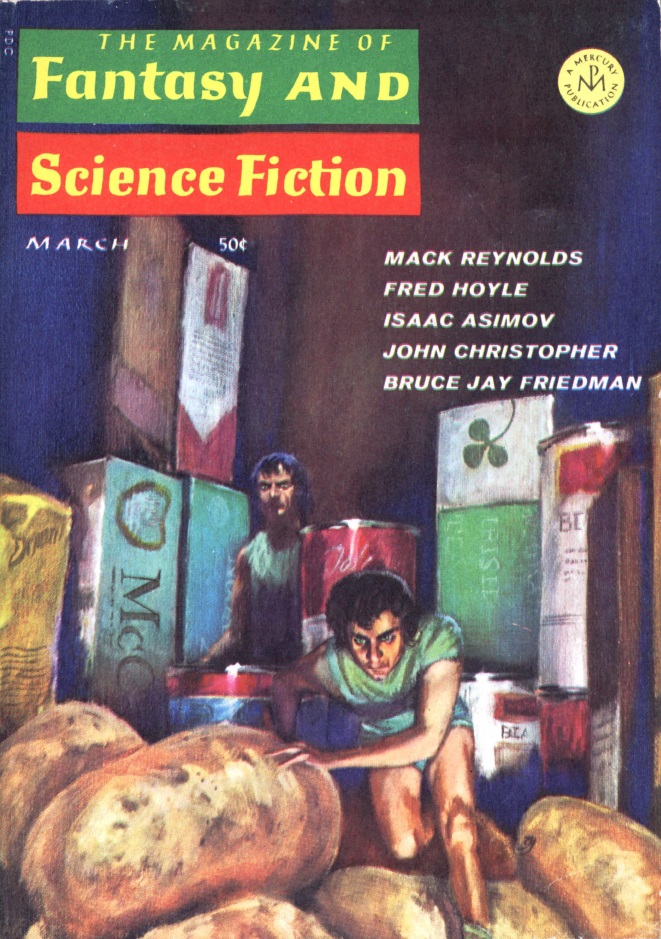
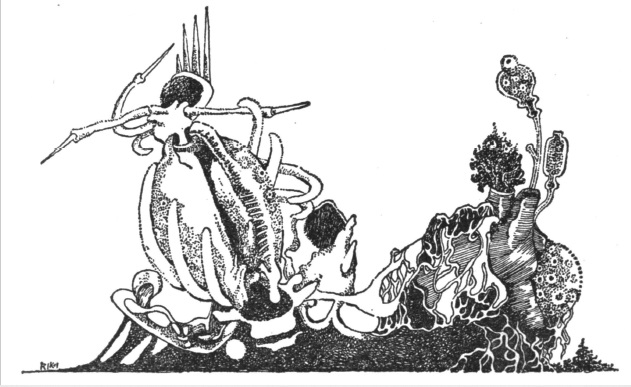
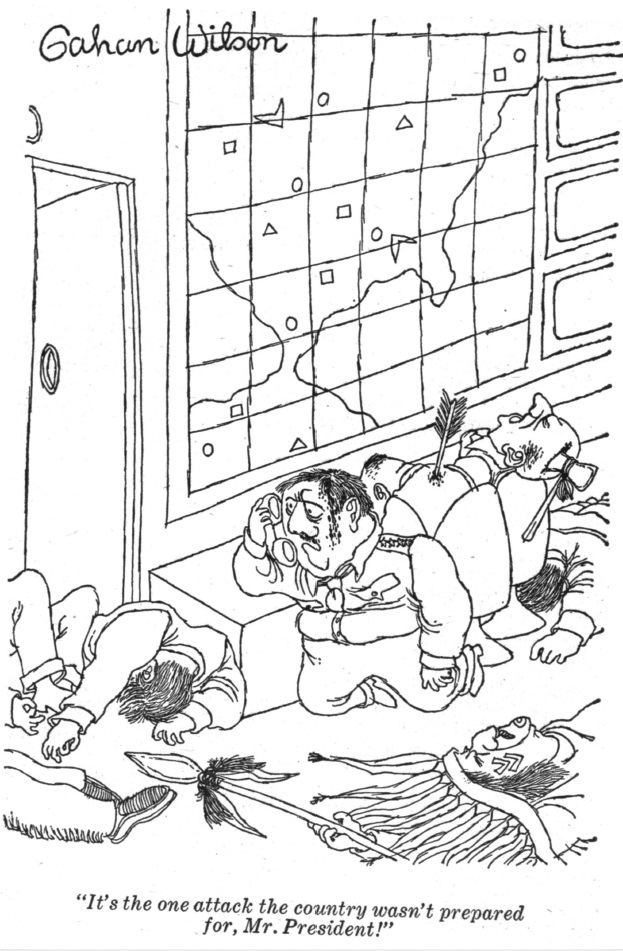
![[February 4, 1967] The Sweet (?) New Style (March 1967 <i>IF</i>)](https://galacticjourney.org/wp-content/uploads/2022/01/IF-Cover-1967-02-full-672x372.jpg)




![[January 31, 1967] The Law of Averages (February 1967 <i>Analog</i>)](https://galacticjourney.org/wp-content/uploads/2022/01/670131cover-672x372.jpg)

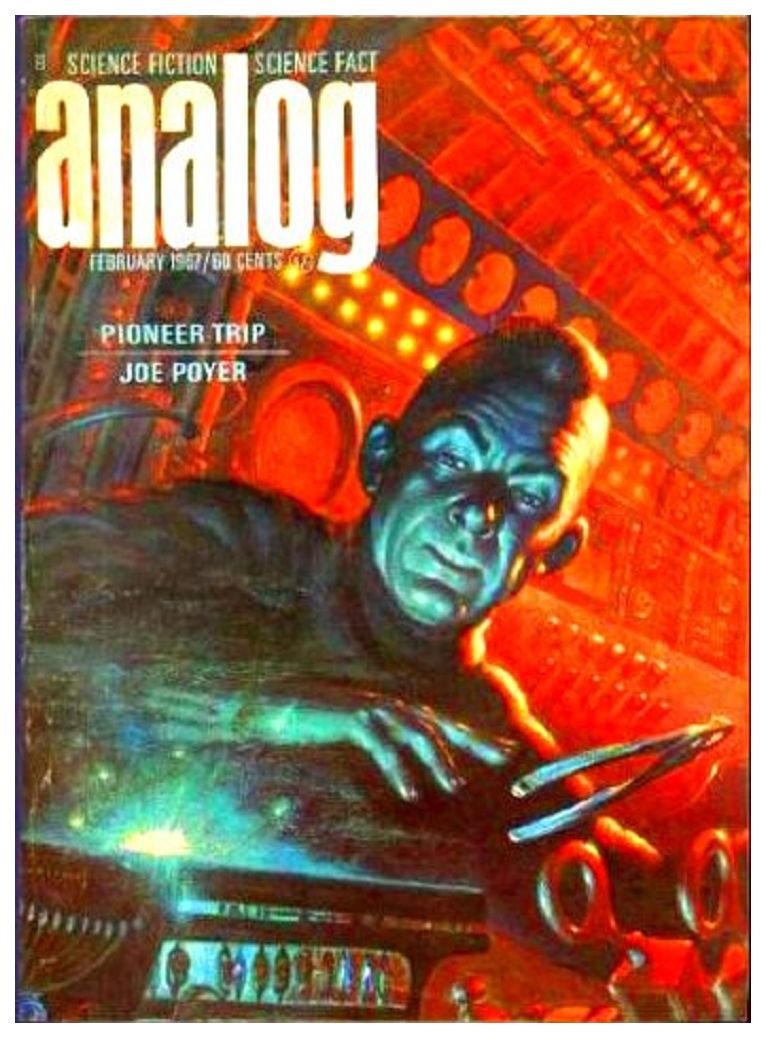
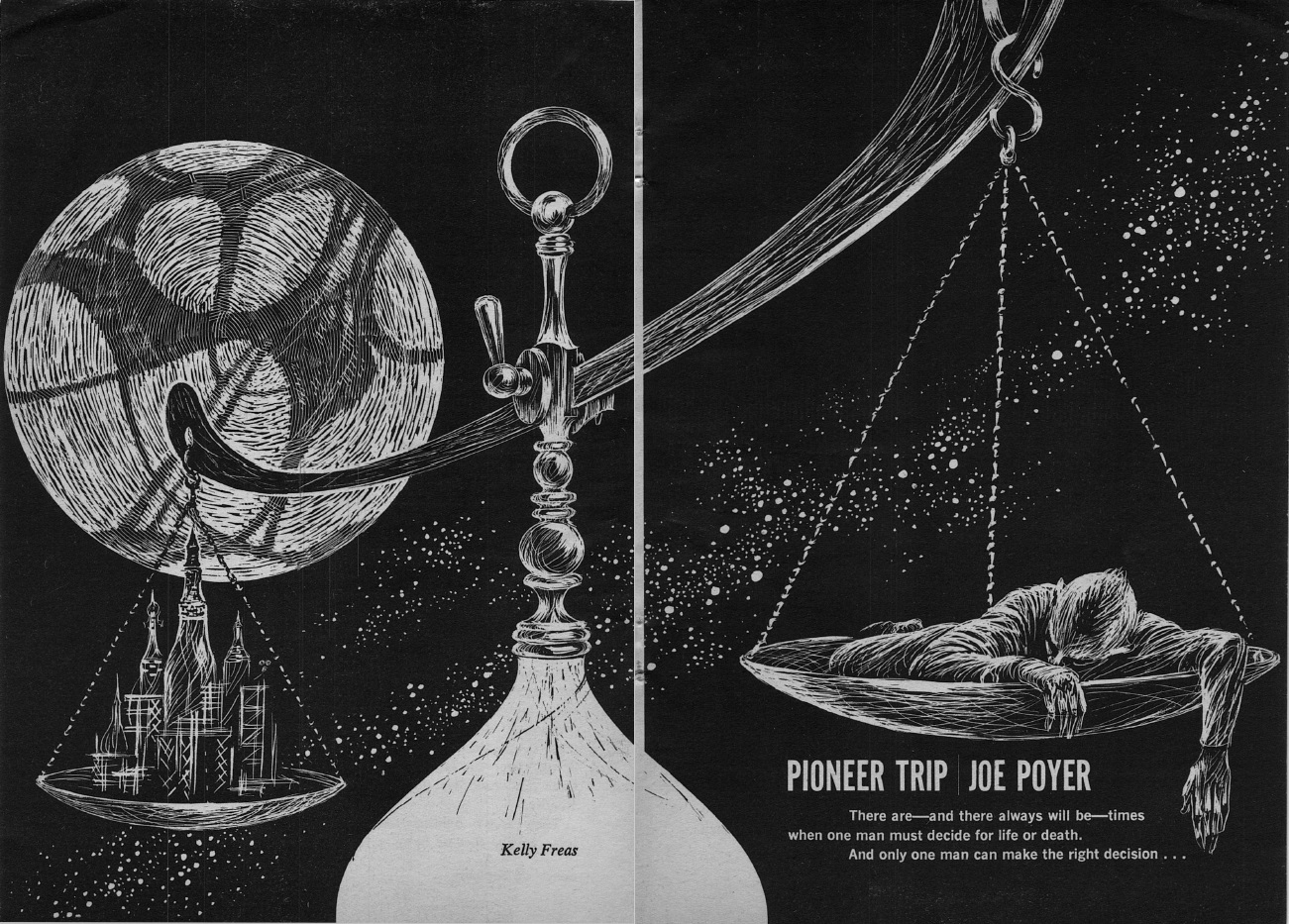


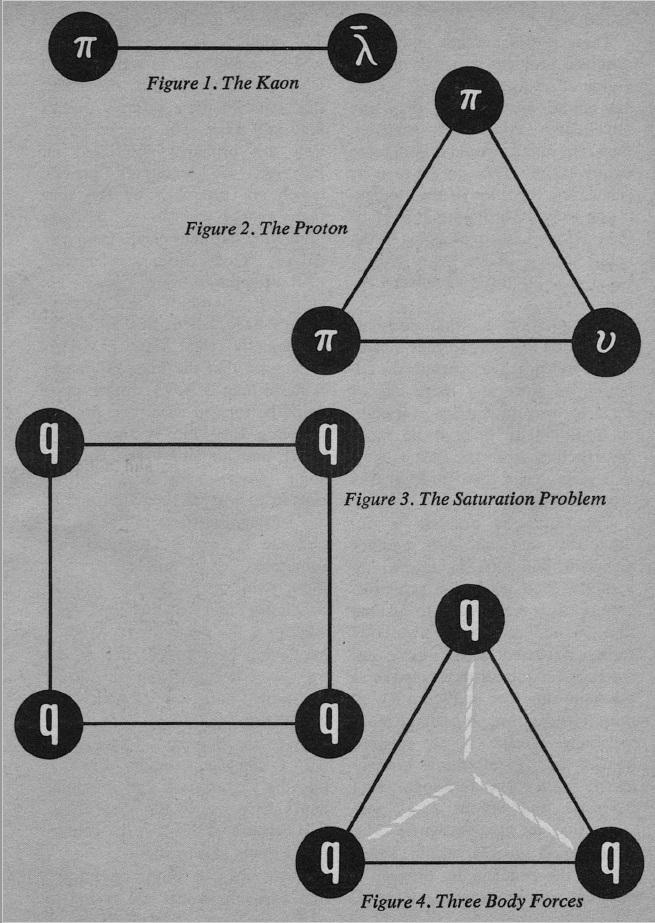
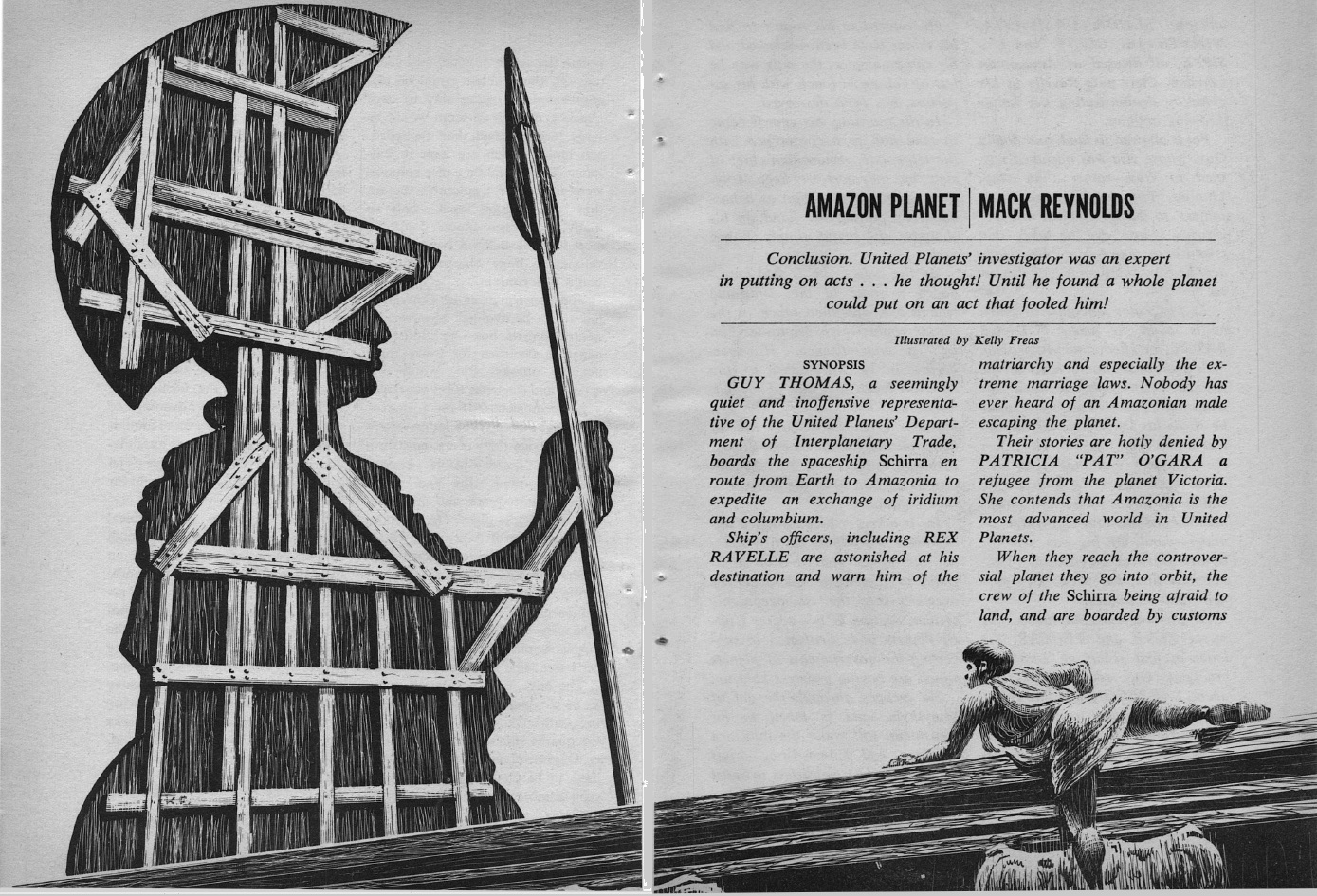


![[January 20, 1967] Sag in the middle (February <i>Fantasy and Science Fiction</i>)](https://galacticjourney.org/wp-content/uploads/2022/01/670120cover-1-422x372.jpg)





![[January 10, 1967] Return to sender (February 1967 <i>Galaxy</i>)](https://galacticjourney.org/wp-content/uploads/2022/01/670110cover-672x372.jpg)

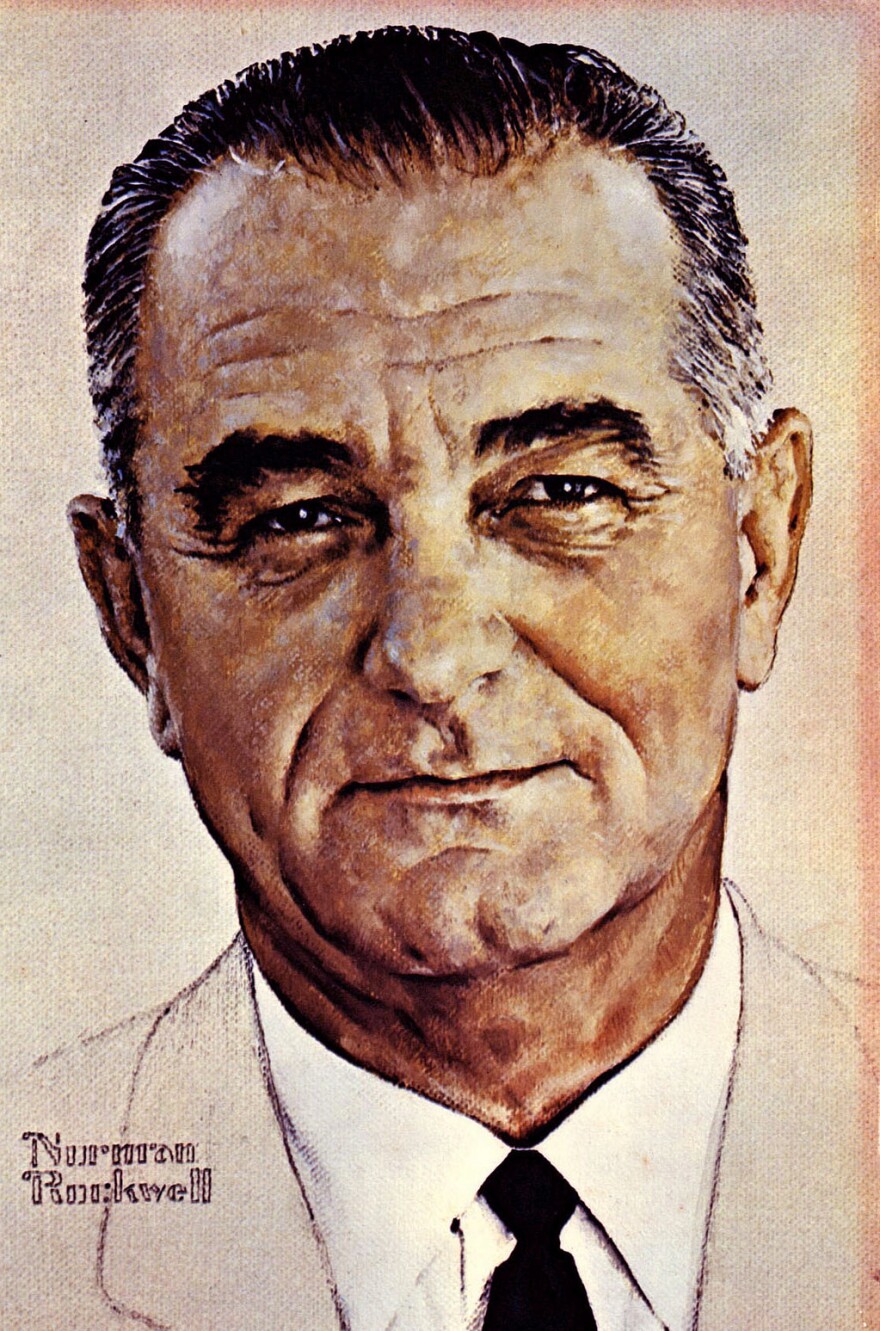
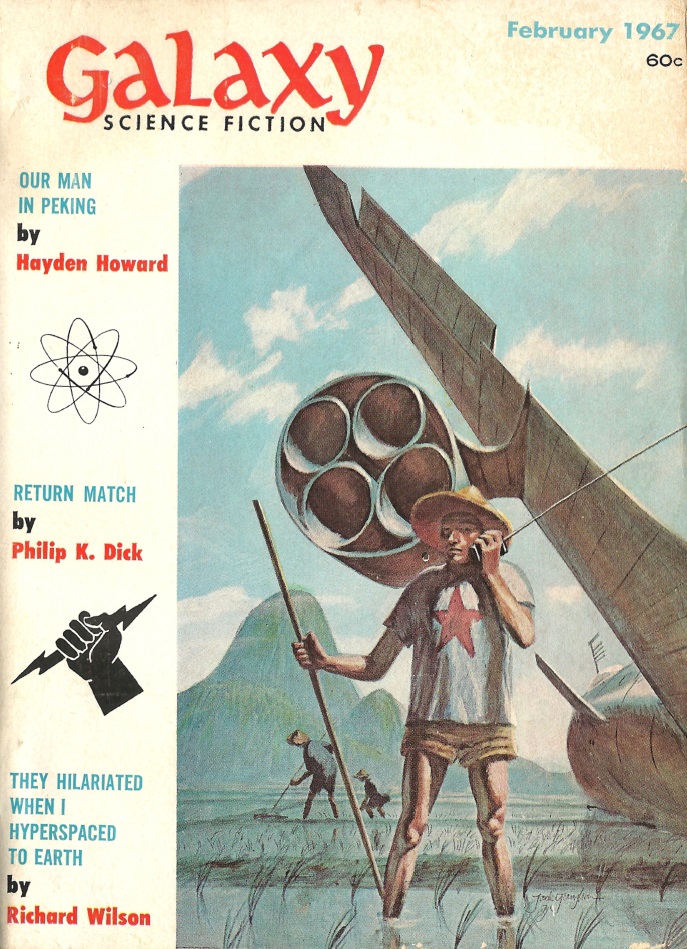

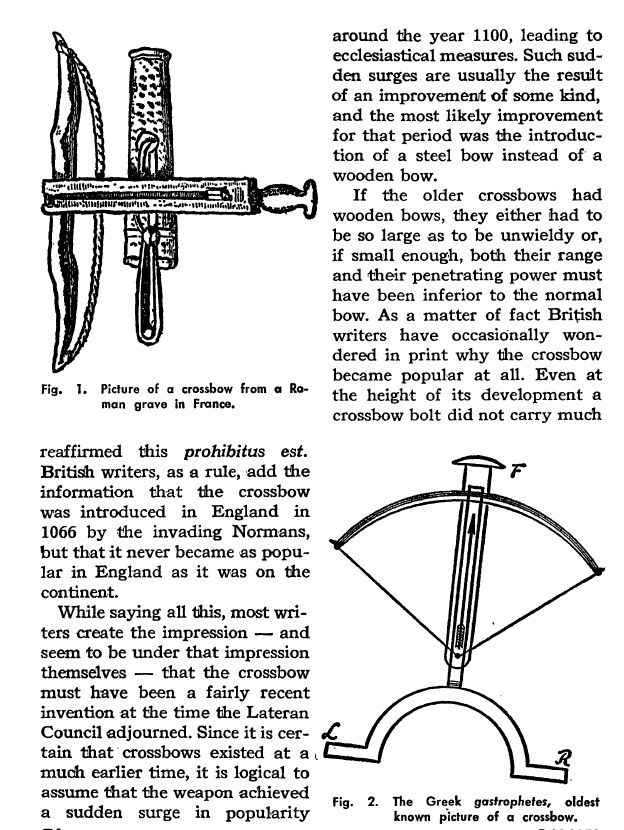
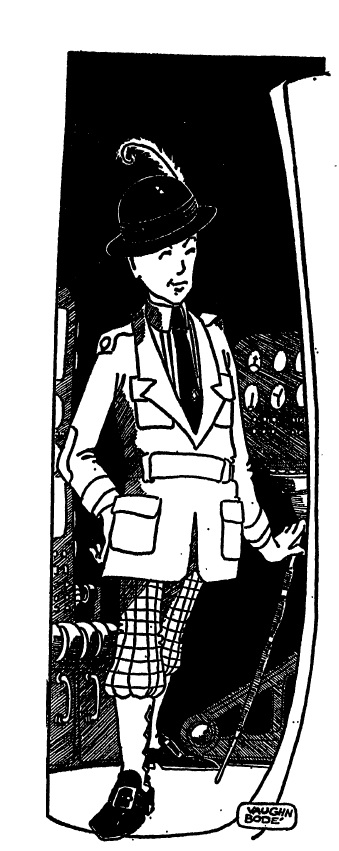
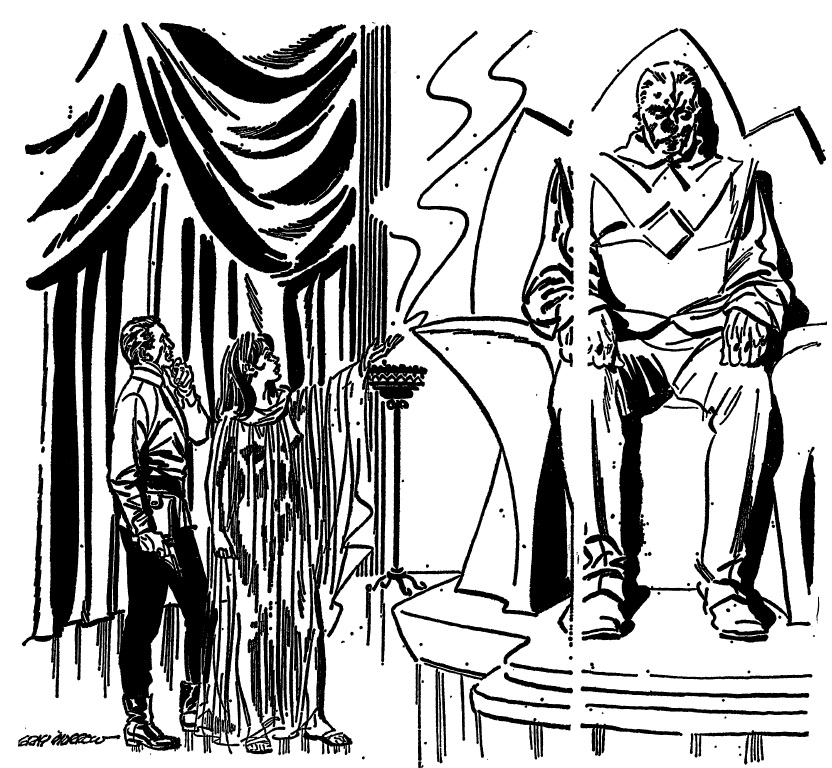
![[January 2, 1967] Different perspectives (February 1967 <i>IF</i>)](https://galacticjourney.org/wp-content/uploads/2021/12/IF-Cover-1967-01-672x372.jpg)


![[December 31, 1966] Barriers to quality (January 1967 <i>Analog</i>)](https://galacticjourney.org/wp-content/uploads/2021/12/661231cover-672x372.jpg)









![[December 28, 1966] Ice Worlds, Telepathic Martian Mice and Echoes (<i>New Worlds</i> and <i>SF Impulse</i>, January 1967)](https://galacticjourney.org/wp-content/uploads/2021/12/New-Worlds-Impulse-Jan-67-1-672x372.jpg)
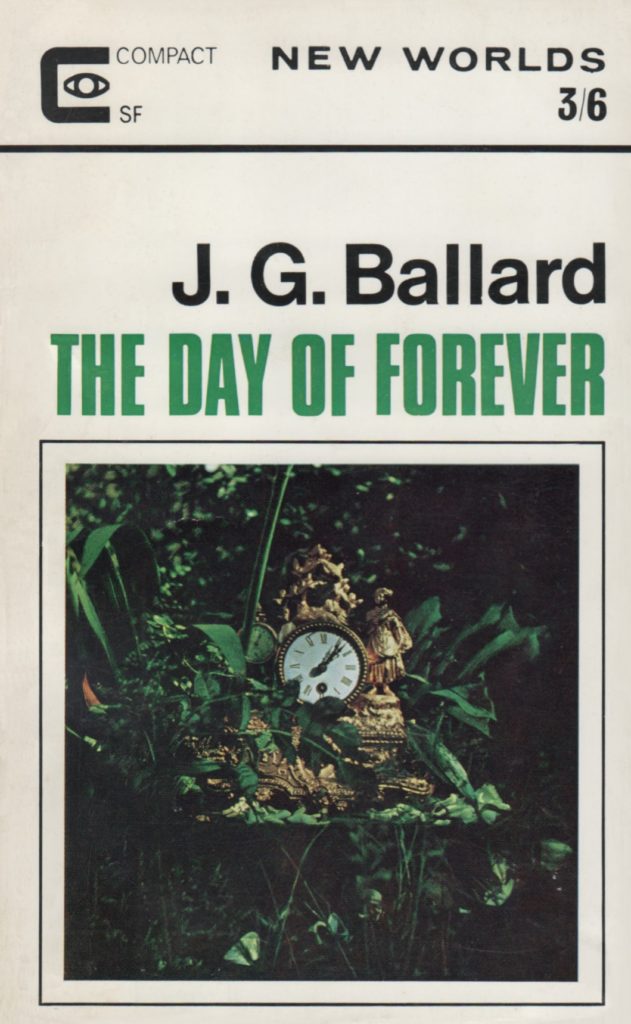
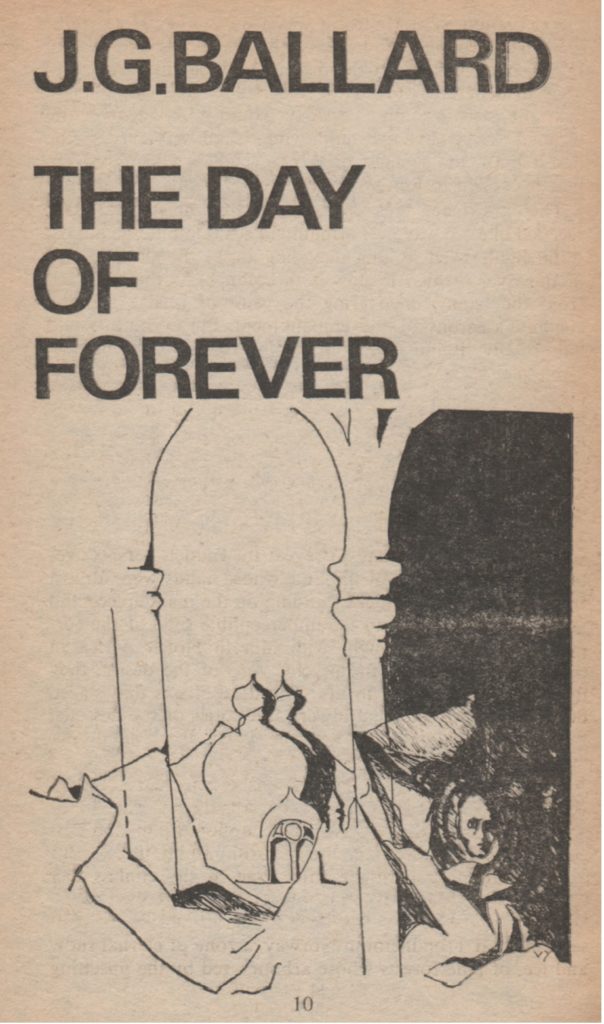 Illustration by James Cawthorn
Illustration by James Cawthorn Illustration by James Cawthorn
Illustration by James Cawthorn Illustration by James Cawthorn
Illustration by James Cawthorn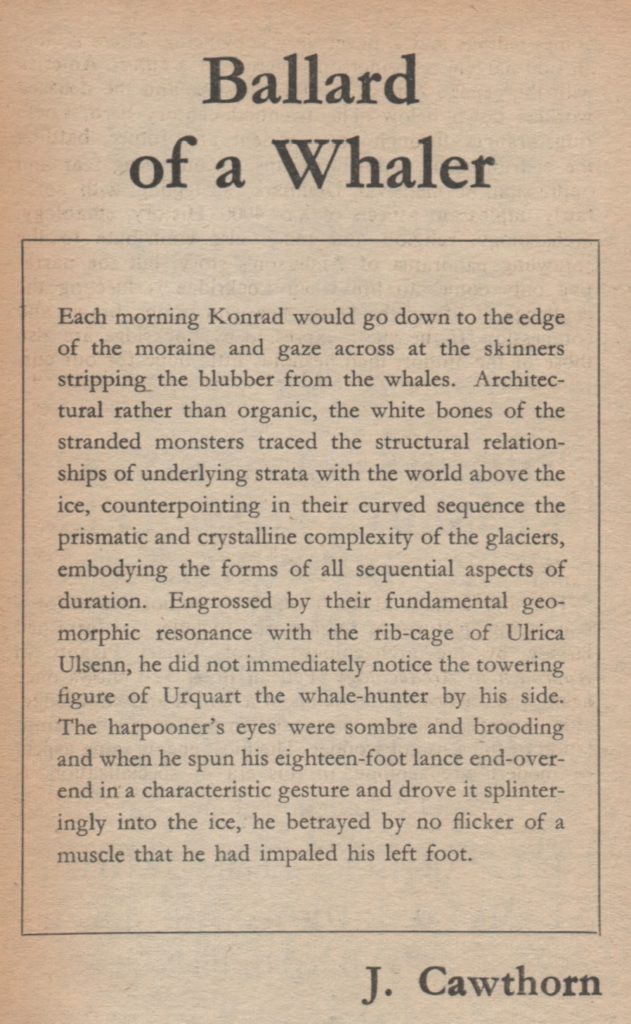
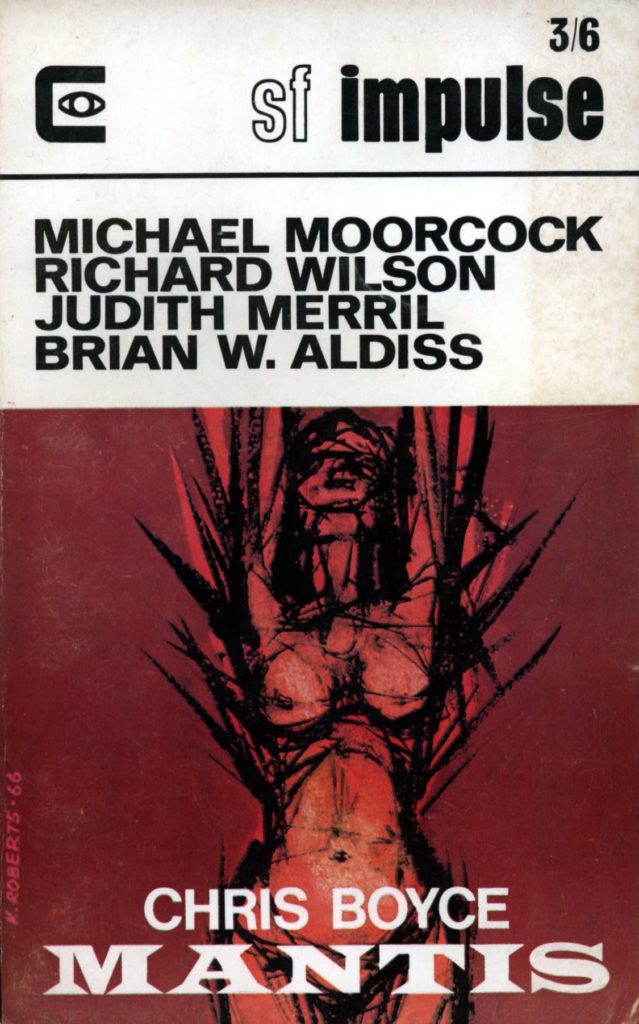
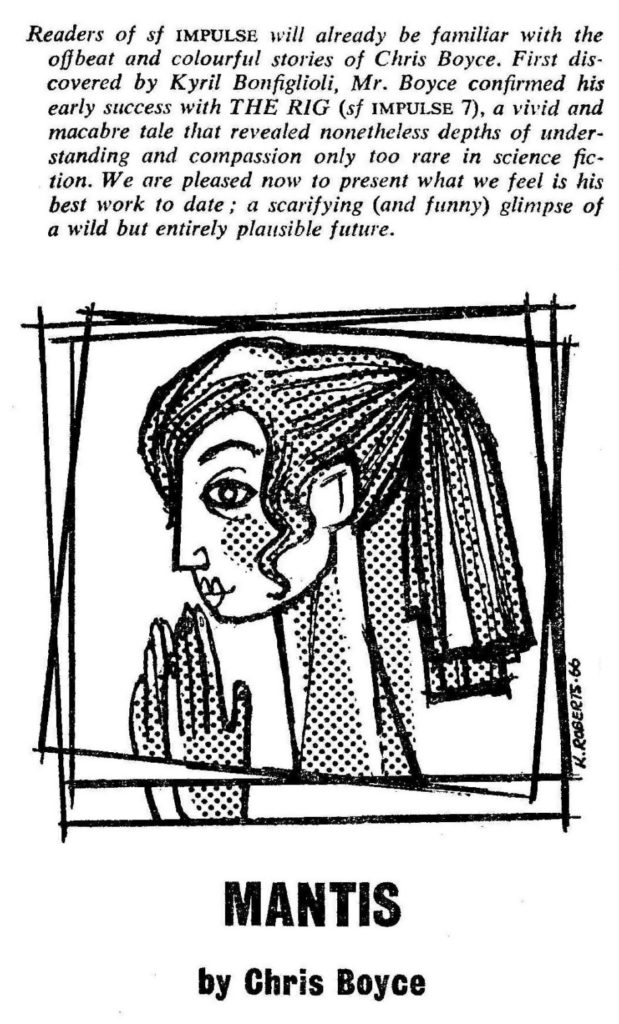


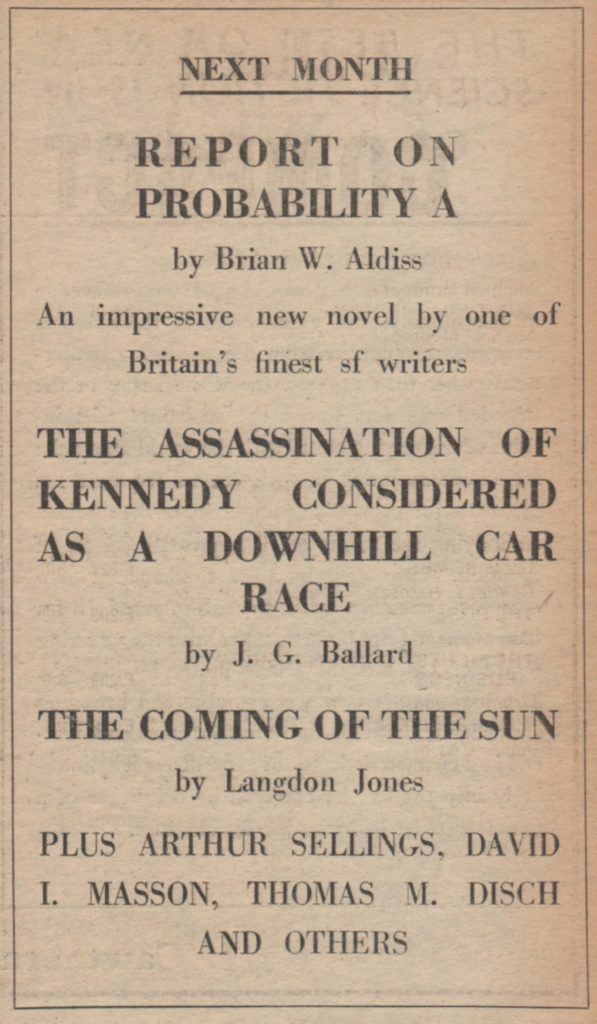
![[December 20, 1966] Above and beyond (January 1967 <i>Fantasy and Science Fiction</i> and a space roundup)](https://galacticjourney.org/wp-content/uploads/2021/12/661220cover-656x372.jpg)




